22-26/8/2019. After 52 hours cooped up in the train, I finally alighted in Vladivostok, my last stop in Russia, having traveled from one extremity to the other. Not easy sometimes. For example, one of the two toilets for the entire coach was out of commission for a good part of the day. This would have been a good time to have constipation. But what better way to get to know the Russians as a tourist constantly on the go, than to be thrown into their midst, in a third-class cabin, cramped like canned sardines, compelled by circumstance to live together, see all their daily activities, their interactions, their emotions, their intimate details, sunrise to sunset?
From St. Petersburg to Vladivostok, over 10,000 kilometers, the train ride took about 144 hours, plus 14 hours to and from the bus ride to Olkhon Island. I arrived here with a sense of accomplishment. I shook the dust off my body, gave myself a pat on the back, ready to relax for two days, regurgitating the sweet aftertaste of Russia along the way.
The Russians here were mostly white. But this time, the city was also swarming with young Korean visitors, making it appropriately quite Asian. The shop signs were often in Russian, English, Chinese, and Korean. The sky was blue, but the water at the city center’s beach was almost black. For a moment, I thought this was the Black Sea. The air was cheery, stirred by happy tourists who swarmed the city in search of a western experience in Asia.
Water and bays surrounded the city. A walk around the city’s seafront was a nice way to appreciate Vladivostok. On a sunny Sunday, the locals sunbathed on the pebble beach and swam in the almost-black water among the remains of decrepit concrete structures. It had the look of a sad beach. But that was all they had. The sea is always alluring, no matter how you see it.
I tried to order risotto in the food court of a mall. The server said it was spicy. It turned out to be kimchee rice. That’s how Korean this place is. I then ordered a salad but had a hard time explaining the dressing. After a lot of confusion, the two young Russian girls at the counter gestured and replied, “No, no, no.” I wanted to confirm, so I used my translation app, typed, “No dressing?” The girls looked at it and let out a small scream and a cheeky giggle. I walked away, then realized it might have mischievously translated, “No clothes on?” or “Undressing?”
Indeed, it was a journey of discovery. No, not just the cities, the scenic spots, but the people. Contrary to my preconceived idea, I did not see any Russians drunk, except one groaning from inside a little shrub by the roadside. In fact, I did not see much drinking at all. Disappointingly, I did not see any Russian mafias either. I never felt at any time unsafe except once, in Ulan-Ude, when an unleashed cocker spaniel hounded me.
This may be the land of bears, but don’t expect any bear hug from the Russians. Outwardly, they may look stoic, but there is a good sense of decency and civility. While language could be a barrier at times, the Russians often acknowledged thank you with a warm, soft guttural “hm, hm, hm.” The only Russian word I knew before coming was nyet for “no”; affirmatively negative, even hard sounding. What I hear much more frequently, however, was the repetitive acknowledgment of “da, da, da, da, da,” soft, reassuring, and positively positive. A massive country with only 140 million people. I suppose in that sense, it is not the headcount that counts; what counts is the head.
22-26/8/2019 – 车内监禁五十二小时后终于抵达符拉迪沃斯托克,俄罗斯最后一站。俄罗斯左耳走到右耳,来之不易。比如,有一两天车内仅有的两个洗手间其中的一间不通了。那人的管道也只能跟着被堵了,真活受罪。俄罗斯之旅从圣彼德斯堡到符拉迪沃斯托克全程坐火车共一百四十四小时, 另加十四小时坐巴到奥克伦岛去贝加尔湖, 共跑了大约一万公里,抵达后有点成就感,准备在这儿住上两天放松,洗尘庆功,慢慢回味这长途的跋涉。
这里都是白肤俄人, 但来了不少韩国青年,把这城市变得像亚洲的洋城市。招牌都以俄,英,中和韩语招手。天是蓝的, 但市内海水是黑的,我一时还以为这里是黑海。到这里的游客青年居多,活泼快乐,气氛喜气洋洋,适合我心态。
这城市多处面海,眼前都是港湾。我市内沿岸散步,悠闲欣赏这城市的风貌。星期天人们都出来庆祝夏天,在户外尽情享受暖和阳光,蔚蓝天空。但这不是个骄人的海滩 – 狭窄的卵石滩,红茶般的海水,残留的水泥废墟结构,饱尽沧桑,看了凄凉,可是人们好像没讲究, 都乐在其中。一俄青年刚从海滩回来,十分失望,但言道 “我来自莫斯科,我们没海”。海就是海,湖毕竟不是海 – 海开阔,自由。
在商场快餐前台点了调味饭,两位俄女孩服务员提醒有点辣,吃了一口, 原来是韩国泡菜饭,这里的俄罗斯也变味了。在前台跟两位俄罗斯女服务员点盘色拉, 费尽口舌解释什么色拉调酱,几番周折后,还是僵在两位服务员的回答“没有,没有,不是,不是”。我没明白,于是用翻译软件输入“No dressing?” ,“没调料?”的意思。两位天真漂亮女孩看了我手机后, 尖叫了一声,然后咯咯的笑,我一脸莫名其妙。走开后,脑子还不停在转,后来才觉悟,英语dressing意思是色拉酱, 也是穿衣服。手机可能把我的话转告为 “没穿衣服?” 或 “脱衣服”。色拉变成色狼,幸好没被喊打。
只看风景,跑城市不能说是探索俄罗斯。我好奇俄罗斯人,在那面无表情的外表下是那一色的人。没来之前的印象给颠覆了。我没看到满街醉汉,甚至连喝酒都不常见,只见过一个躺在草丛里醉言乱语,。也失望没见到什么俄罗斯黑手党。我在这里乱闯乱撞,逍遥自在的溜达, 没缺安全感, 除了一次在乌兰乌德,一只小狗一直向我追击,屡次威胁,我以狗语好言相劝,他犹豫一会后,又冲到跟前,就只欠咬一口。小毛狗自以为是大熊,把我惹毛后, 我怒吼一声他才拉着尾巴跑了, 还真把我当病猫, 要不就东亚病夫。没来之前唯一会的俄语就是“net”,“不”的意思, 语气听起来强硬。来了之后, 更常听到的是轻轻的“da,da,da”, “是的”意思,真的像棉花糖,又柔又甜,很亲切, 听后真想给对方一个拥抱。耳闻负面,实际却正面得多。这里虽是熊之乡,不要期望会得到俄人给你熊抱。但在那木鸡般的冷漠外表,底层还是有一定的文明和人情味。虽语言不通,得到你的感谢和让路, 都会喉里 “嗯嗯”的心领,很暖心。俄罗斯人口仅只一亿四, 但是跨越欧亚最大国, 不可撼动的世界地位。我想重点不是多少人头,而是人的头 – 那里面装了什么。
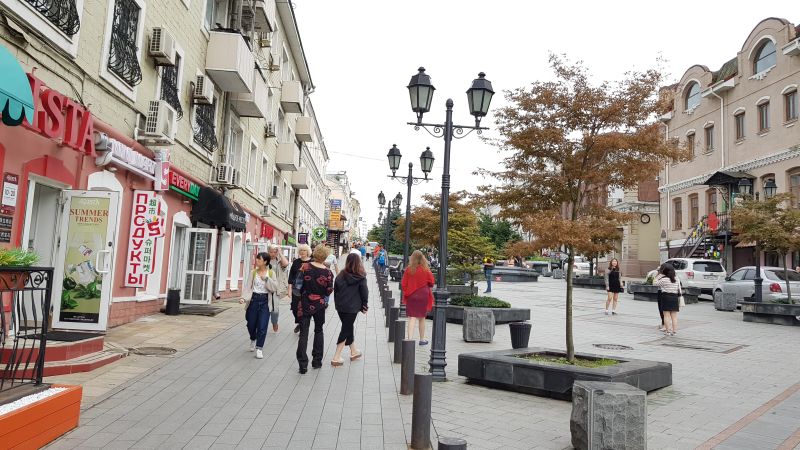
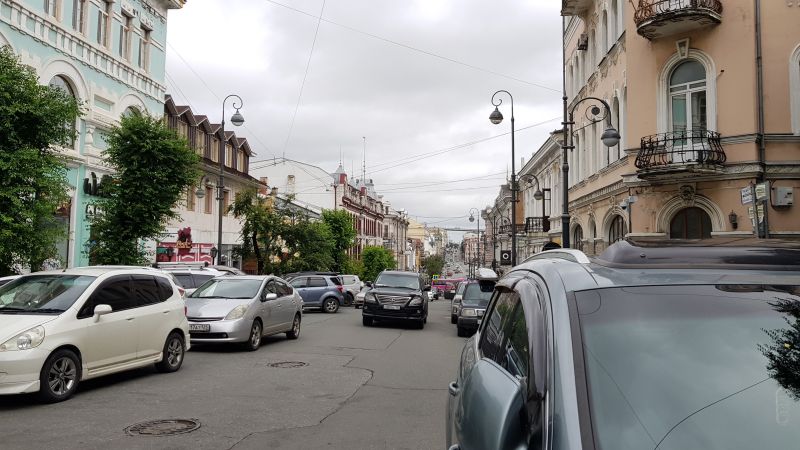
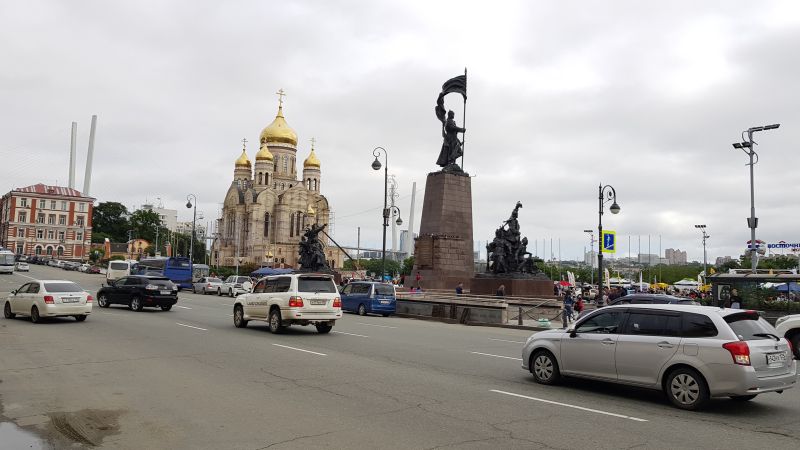
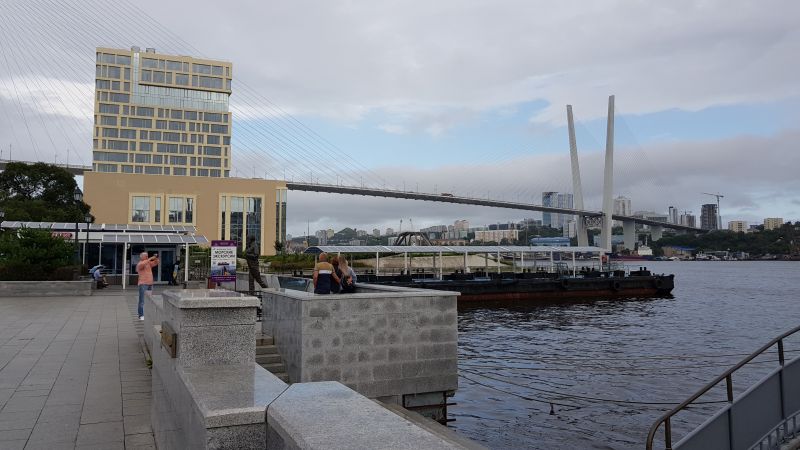
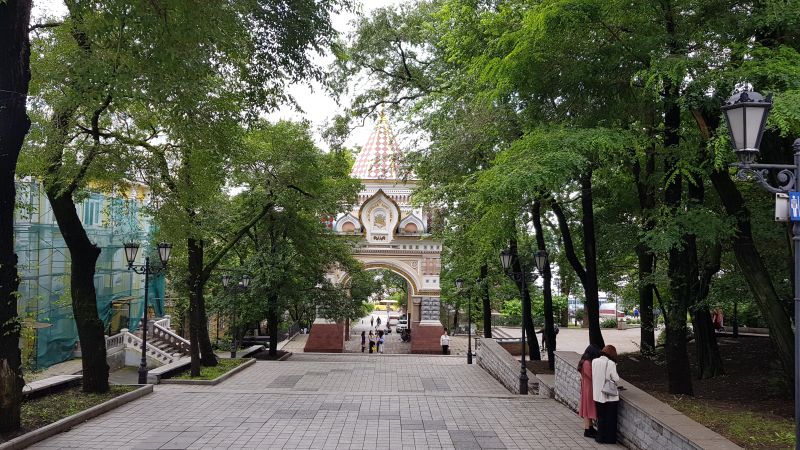
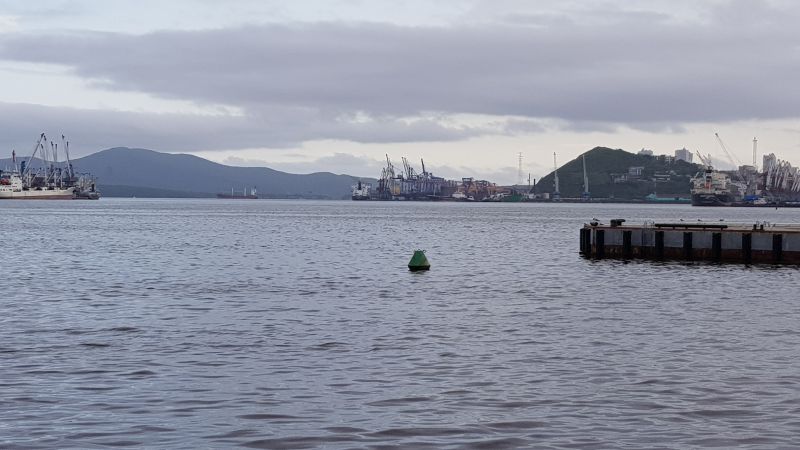
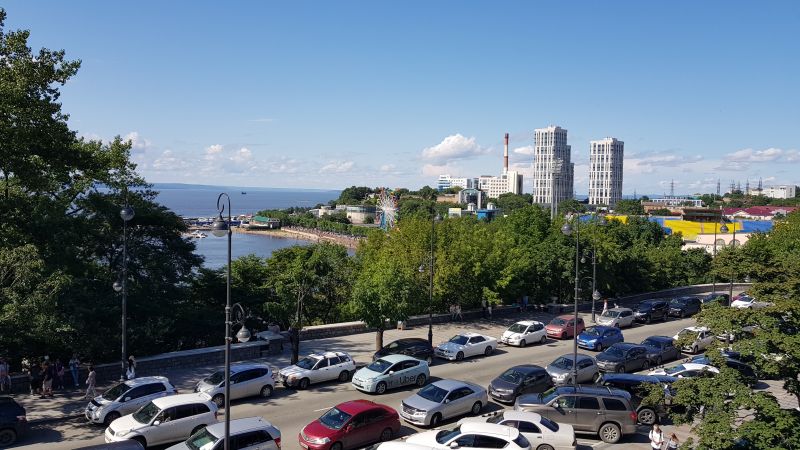
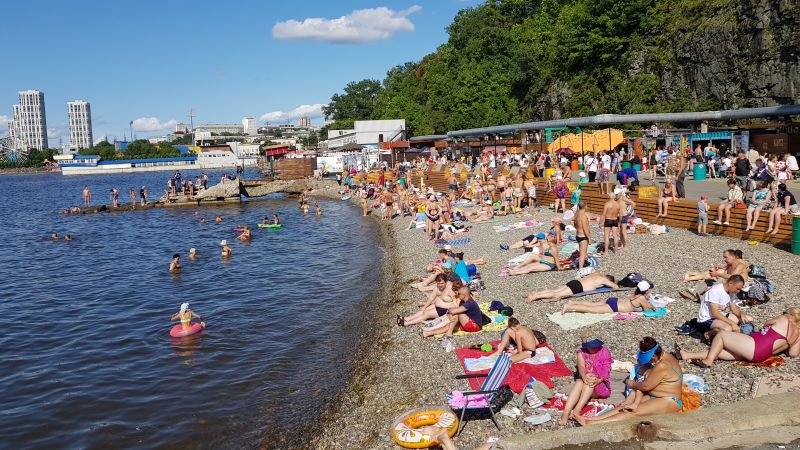
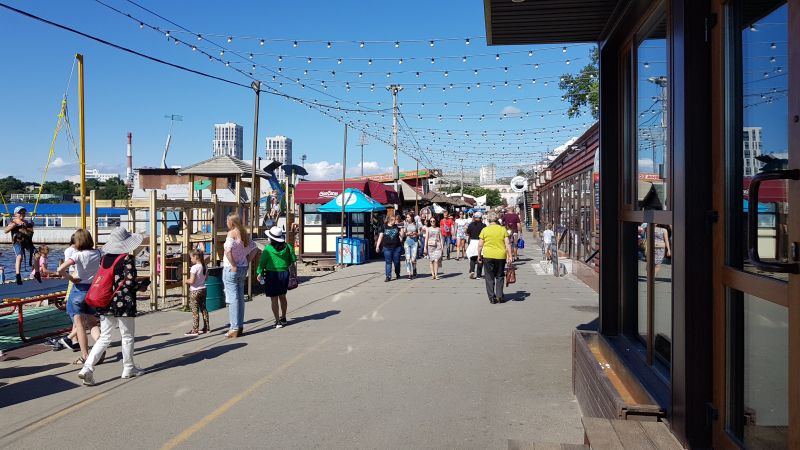
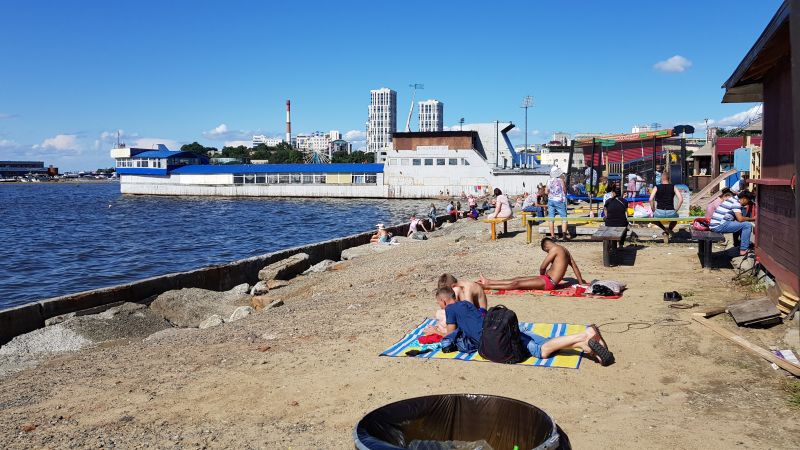
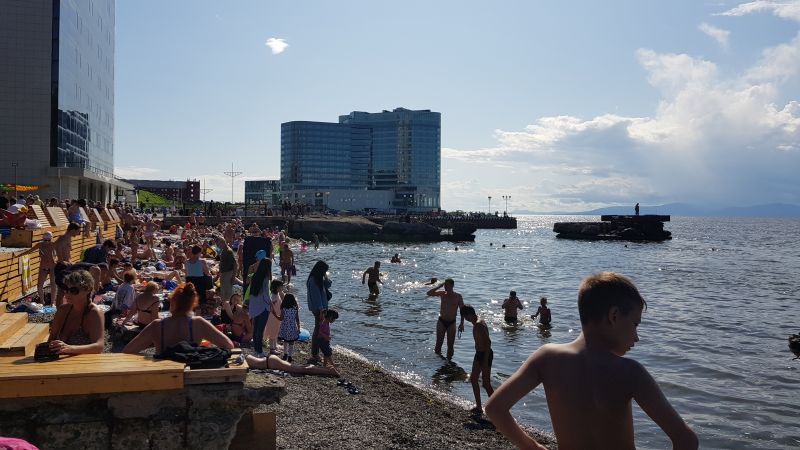
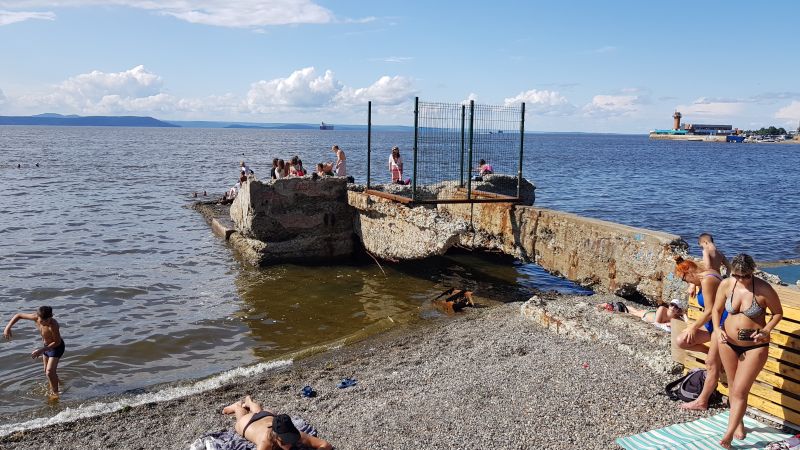
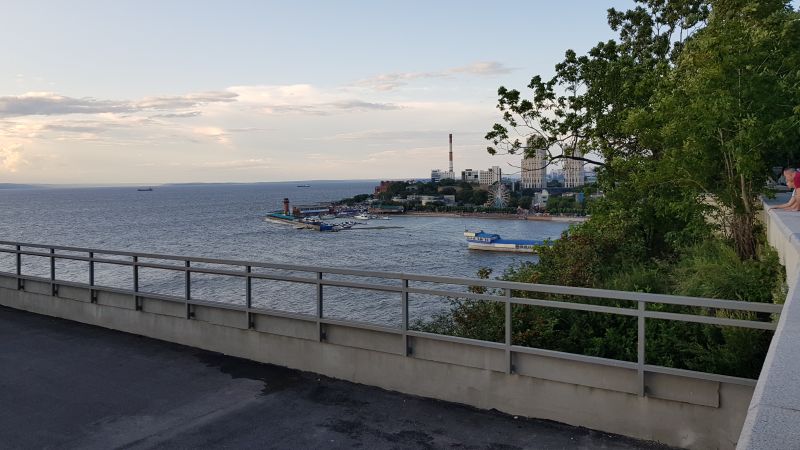
Slot game tại 888slot có lừa đảo không có RTP trung bình từ 96% trở lên – cao hơn mặt bằng chung, giúp bạn tối ưu lợi nhuận lâu dài. TONY01-08